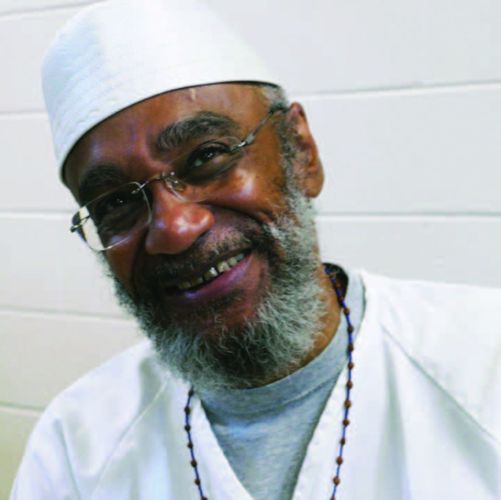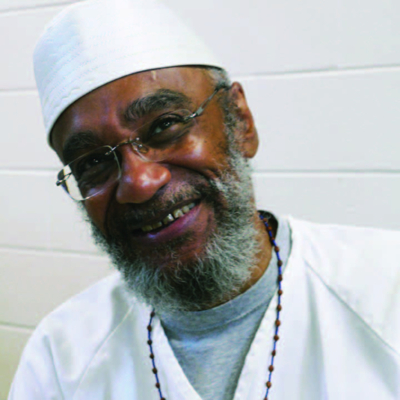
Abu-Ali Abdur'Rahman
In August, Nashville Criminal Court Judge Monte Watkins approved a proposed order vacating the death sentence of Nashville death row prisoner Abu-Ali Abdur’Rahman and replacing it with a life sentence. The order was proposed by Davidson County District Attorney Glenn Funk, who cited racial discrimination in jury selection and other prosecutorial misconduct during the 1987 trial, and looked to spare Abdur’Rahman the death penalty months before his scheduled execution. Funk’s proposed order came after Watkins decided that Abdur’Rahman was entitled to a new hearing in the case.
But now, Tennessee Attorney General Herbert Slatery says he will challenge that order, calling it “unlawful” and “unprecedented.” In his statement, Slatery does not specifically address the racial discrimination in jury selection or prosecutorial misconduct on the part of then-Assistant District Attorney John Zimmermann. The statement:
The order exchanged the death sentence of Tennessee inmate Abu-Ali Abdur’Rahman for life in prison, thus essentially granting clemency through a court and a district attorney that both lack the authority to do so.James L. Jones Jr., as he was known at the time of his crimes, was convicted of first-degree murder, attempted first-degree murder and armed robbery in 1986. The same jury that found him guilty of murder sentenced him to death.
Over the last 30 years Mr. Abdur’Rahman has repeatedly raised the same issues Davidson County District Attorney Glenn Funk relied on in the trial court, all of which were thoroughly litigated and rejected in the state courts and on federal review through the United States Supreme Court.
That leaves no option for reopening Abdur’Rahman’s case for post-conviction proceedings or otherwise amending the sentence.
The Office of the Attorney General has the obligation to defend the rule of law and to ensure that the process is fair and transparent, especially when it relates to criminal matters that affect the rights of innocent victims, the accused, and the public.
"The public has put a special trust in this Office to help preserve the integrity of the criminal justice system," said General Slatery. "This order uproots decades of established legal procedure and lacks any legal justification which is why we are appealing."
In response to Slatery’s announcement, Funk tells the Scene, “I stand by my position.”
Abdur’Rahman’s attorney Bradley MacLean tells the Scene he will respond to the AG’s announcement. We will update this story when he does.
Update: See MacLean's statement below.
Today the Tennessee Attorney General filed a Notice of Appeal seeking to challenge the Agreed Order approved by the Davidson County Criminal Court that converted Mr. Abdur’Rahman’s death sentence to a life sentence.The Davidson County District Attorney General and Mr. Abdur’Rahman entered into an arms-length consent decree converting Mr. Abdur’Rahman’s death sentence to a life sentence. This consent decree was based upon the evidentiary record demonstrating that a rogue prosecutor engaged in racially discriminatory jury selection at Mr. Abdur’Rahman’s capital trial. The Davidson County Criminal Judge Monte Watkins, after taking the matter under advisement, approved the consent decree. Judge Watkins found that the parties had reached an “equitable and just resolution” in order to “remedy an injustice.”
The Attorney General has taken the unprecedented step of challenging the judgment and authority of the Davidson County District Attorney who is responsible for all criminal cases in Davidson County. The State of Tennessee is bound by the consent decree, and the Attorney General lacks standing to challenge it.
The Tennessee Constitution gives the District Attorney the exclusive authority to handle criminal cases within his district. Today’s action by the Attorney General is an unlawful attempt to usurp the power of the District Attorney.
By attempting to undermine the authority and the prosecutorial discretion of the District Attorney, the Attorney General is turning a blind eye to the gross injustices in Mr. Abdur’Rahman’s case and is attempting to sanction the kind of racial bias and egregious prosecutorial misconduct that occurred in the case. The Attorney General is not seeking to uphold our most cherished constitutional principles. Instead, the Attorney General is taking a stand for racism and a prosecutor’s violation of his constitutional and ethical duties.
We will vigorously defend the lawful judgment of the Criminal Court.







